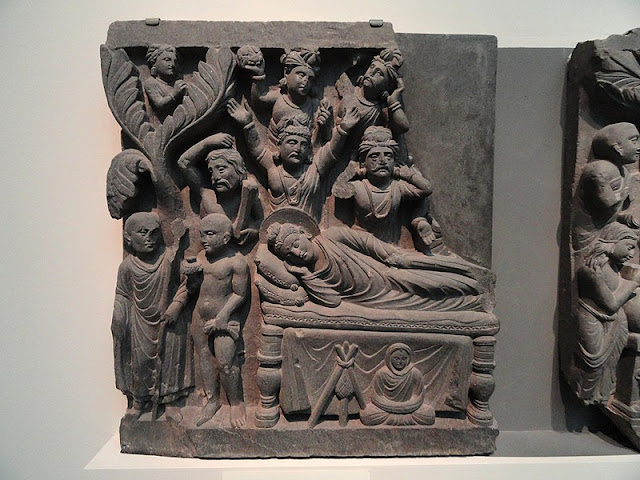Ajivikas were a religious sect founded in the 5th century BC by Goshala Maskariputra, a contemporary of the Buddha and Mahavir. The doctrines of the Ajivikas have come to us only from Buddhist and Jain texts which are highly critical of this sect. Naturally enough, they were the chief rivals of Buddhists and Jains. The cardinal point of the doctrines of the Ajivikas was a belief in the rule of the principle of order, Niyati or fate. Hence, there was no room for human volition.
The Ajivika sect enjoyed its heydays during the Mauryan rule under Ashoka and his successor Dasharatha. Two of the Barabar caves in Gaya in Bihar were dedicated by Ashoka to the monks of Ajivika sect. Dasharatha is also credited with the dedication of three caves in the Nagarjuni Hills, near Barabar, to them.
This strictly deterministic sect survived until fourteenth century in South India where the Ajivika monks practised severe asceticism. Inscriptions show that a special tax was levied on them by the Cholas.
The Jaina text Bhagwati Sutra is the main source of the information about the Ajivika sect. Bhagwati Sutra has been translated into English by K. C. Lalwani.

Comments
Post a Comment